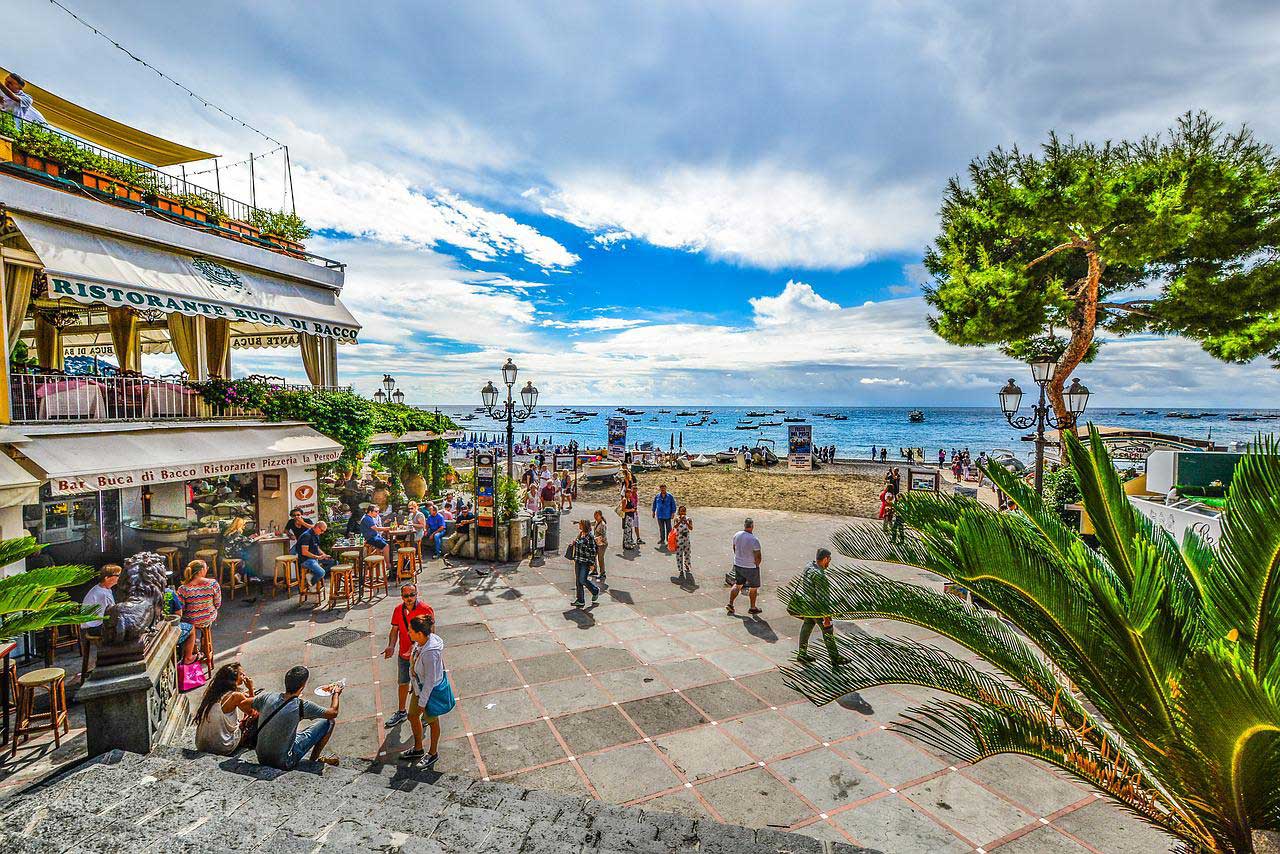A ban on swimwear and towels, and identification bracelets are just some of the changes that have taken place in the famous Italian resorts in 2022.
A growing number of Italy’s beach resorts are introducing new regulations to counter the effects of overtourism and protect their shores from sand erosion and other damage. It even went as far as enforcing ID bracelets and beach entrance fees and banning the use of towels and bathing suits.
Beautiful and incredibly crowded in the high season, the city of Sorrento, located near the Amalfi Coast, Capri, Naples, and Rome, has become famous all over the world. The mayor of Sorrento, Massimo Coppola, expressed dissatisfaction with the fact that tourists take to the streets in beachwear, although what else can you walk in the intense summer heat. Last week, City Hall went on record that those bare-chested or even in bikinis, swimsuits, and swimming trunks outside the beaches or pools of Sorrento could face fines of up to €500. The new order has already been dubbed the “Anti-Bikini Act.”
Similar rules apply in the city of Rapallo on the Italian Riviera and in the Calabrian city of Praia a Mare, where in addition to bans on wearing swimsuits on the street, people are also prohibited from walking barefoot. The Cinque Terre protected region is also strict about shoes, imposing fines of up to 2,500 euros on people for wearing slippers or sandals while walking along its famous promenades.
La Pelosa beach in Sardinia attracts thousands of beach lovers every day. This is one of those beautiful beaches that regularly ranks among the best in Italy with its powder-soft sand and crystal clear waters. But due to human intervention, the beach is losing sand at a fantastic rate. Currently, the authorities are trying to artificially reduce its popularity by limiting the access of visitors to 1,500 people a day. It is forbidden to use towels here to protect the sand – it sticks to wet towels spread over the sand. Therefore, tourists now have to pay for the rental of sun loungers. They must also buy an entry ticket for €3.50 and wear yellow identification bracelets while on the beach.
Other popular beaches in Sardinia have also imposed restrictions on visitors: Lou Imposta – 1,500 people a day, Cala Brandinchi – 3,330.
The Amalfi Coast is picturesque beaches, impressive cliffs, lots and lots of sunshine, and lemons. But the main thing is traffic jams! Every summer in high season, coastal roads are closed and the air is thick with car exhaust as people flock to Amalfi’s seaside resorts. This summer, the authorities decided to take measures to reduce traffic jams and introduced a summer traffic restriction on the route connecting Positano with Vietri Sul Mare.
Now cars with license plates ending in odd digits are allowed to drive on the road only on odd days of the month, for example, the 3rd, 5th, 7th, etc. And cars with even license plates can drive on even days. This policy is valid from 10 am to 6 pm on weekends until the end of September 2022. Taxis and city buses have no restrictions.
Italy has miles of pristine coastline and some of the best beaches in Europe. At the same time, there is less and less free access to the sea. New beach resorts and clubs are being built, and the sandy shore is gradually turning into a private area, where, as a rule, you have to pay for entry and use of sun loungers, umbrellas, and other amenities.
More than half of Italy’s coastline has already been handed over to private concessions, despite being state land. In the last two decades alone, the number of private beach establishments has doubled. Some of them are incredibly expensive, such as Alassio on the Italian Riviera, where in August a regular sun lounger costs up to 380 euros per day.
At the same time, the Italian Ministry of Health is sounding the alarm: 8 percent of Italian beaches are closed due to pollution, especially the difficult situation in Sicily, Calabria, and Campania.

